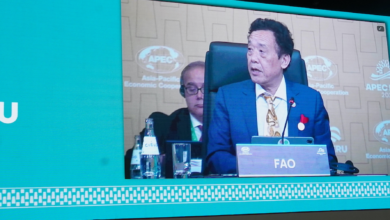Veterinary Council Support Lagos To Curb Antimicrobial Resistance In Animals

The Veterinary Council of Nigeria, VCN has offered a hand of support to the Lagos State Government to curb the spread of antimicrobial resistance in food-producing animals.
AIG (Dr.) Aishatu Baju, President of the Council, who made this known in Lagos, explained that this would be achieved by completely restricting the use of antibiotics for growth promotion and disease prevention.
The President pointed out that the support was necessary because if Lagos got it right, other States would follow suit.
Baju disclosed that Lagos was already on the right track with its Five-Year Agricultural Transformation Strategy adding that this informed the willingness and readiness of the Council to partner with the State Government to ensure the realisation of the goals and objectives of the strategy.
“We are pleased as a Council to note the Five-Year Agricultural Transformation Strategy of the State which centres mostly on the Red Meat Value Chain and are willing and ready to partner with the State to ensure the realisation of the goals and objectives of the Strategy.
“This partnership will, in particular, focus on ways to curb the spread of antimicrobial resistance in food-producing animals by completely restricting the use of antibiotics for growth promotion and disease prevention. By this, we will ensure that only wholesome and hygienic meat is produced for consumption.
“Lagos State is very strategic in the Livestock industry in Nigeria as it holds the highest number of private Veterinary premises and related industries in Nigeria. As a result, the provision of Veterinary services to these industries needs to be properly regulated to ensure that they receive the best Veterinary and other Animal healthcare services,” she noted.
The President commended the State Government for its massive support for the livestock industry and veterinary services over the years in furtherance of its red meat value chain development agenda.
Baju commended the State Government for the approval to employ additional 20 Veterinarians and 10 Veterinary paraprofessionals given the current economic situation of the country.
She, however, stated that there was a high risk of transmission of zoonotic diseases from poorly regulated abattoirs and slaughter slab, adding that the international best practice mandates of the veterinarian is to certify all food of animal origin meant for human consumption for the assurance of food safety and security.
Source: independent.ng





